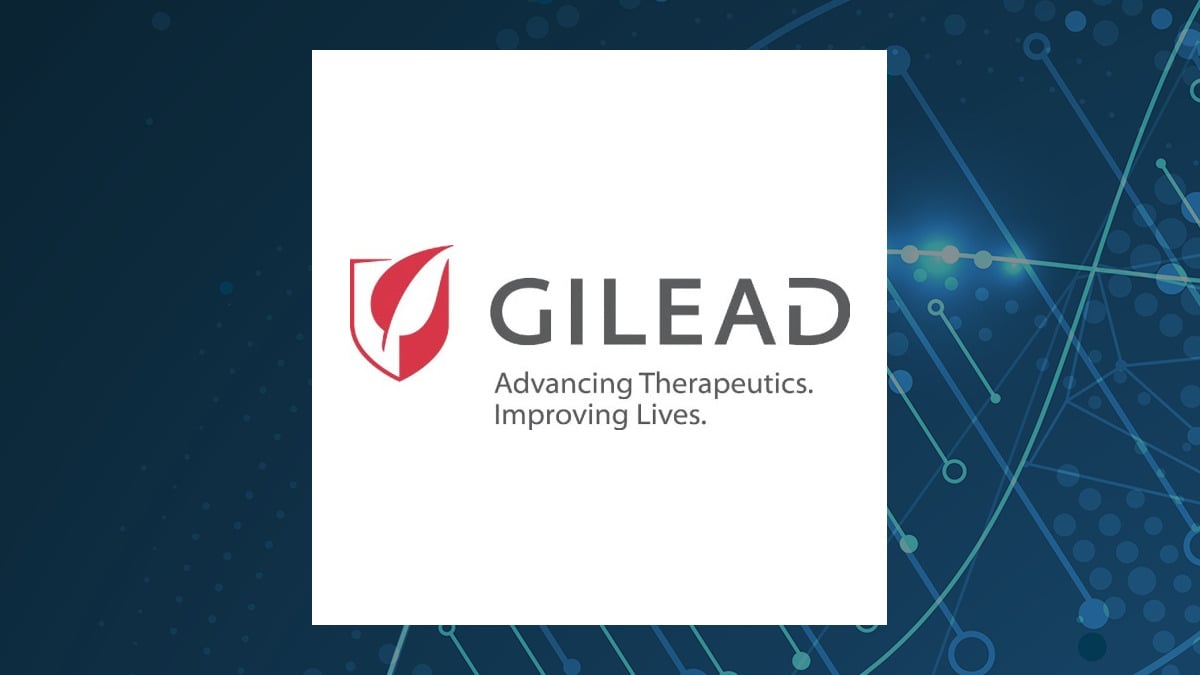Gilead Sciences (NASDAQ:GILD – Get Free Report) and Pluri (NASDAQ:PLUR – Get Free Report) are both medical companies, but which is the superior business? We will contrast the two companies based on the strength of their dividends, profitability, analyst recommendations, risk, valuation, institutional ownership and earnings.
Insider & Institutional Ownership
83.7% of Gilead Sciences shares are owned by institutional investors. Comparatively, 16.6% of Pluri shares are owned by institutional investors. 0.2% of Gilead Sciences shares are owned by insiders. Comparatively, 10.2% of Pluri shares are owned by insiders. Strong institutional ownership is an indication that endowments, large money managers and hedge funds believe a stock is poised for long-term growth.
Valuation & Earnings
This table compares Gilead Sciences and Pluri”s top-line revenue, earnings per share (EPS) and valuation.
| Gross Revenue | Price/Sales Ratio | Net Income | Earnings Per Share | Price/Earnings Ratio | |
| Gilead Sciences | $28.30 billion | 3.96 | $5.67 billion | $0.09 | 998.67 |
| Pluri | $598,000.00 | 39.41 | -$20.89 million | ($6.03) | -0.70 |
Analyst Recommendations
This is a breakdown of recent recommendations for Gilead Sciences and Pluri, as provided by MarketBeat.
| Sell Ratings | Hold Ratings | Buy Ratings | Strong Buy Ratings | Rating Score | |
| Gilead Sciences | 0 | 11 | 13 | 3 | 2.70 |
| Pluri | 0 | 0 | 0 | 0 | 0.00 |
Gilead Sciences currently has a consensus price target of $97.96, suggesting a potential upside of 8.99%. Given Gilead Sciences’ stronger consensus rating and higher possible upside, equities research analysts clearly believe Gilead Sciences is more favorable than Pluri.
Profitability
This table compares Gilead Sciences and Pluri’s net margins, return on equity and return on assets.
| Net Margins | Return on Equity | Return on Assets | |
| Gilead Sciences | 0.45% | 29.00% | 9.83% |
| Pluri | -4,184.28% | -917.18% | -82.85% |
Volatility & Risk
Gilead Sciences has a beta of 0.18, suggesting that its share price is 82% less volatile than the S&P 500. Comparatively, Pluri has a beta of 1.66, suggesting that its share price is 66% more volatile than the S&P 500.
Summary
Gilead Sciences beats Pluri on 12 of the 15 factors compared between the two stocks.
About Gilead Sciences
 Gilead Sciences, Inc., a biopharmaceutical company, discovers, develops, and commercializes medicines in the areas of unmet medical need in the United States, Europe, and internationally. The company provides Biktarvy, Genvoya, Descovy, Odefsey, Truvada, Complera/ Eviplera, Stribild, Sunlencs, and Atripla products for the treatment of HIV/AIDS; Veklury, an injection for intravenous use, for the treatment of COVID-19; and Epclusa, Harvoni, Vemlidy, and Viread for the treatment of viral hepatitis. It also offers Yescarta, Tecartus, and Trodelvy products for the treatment of oncology; Letairis, an oral formulation for the treatment of pulmonary arterial hypertension; and AmBisome, a liposomal formulation for the treatment of serious invasive fungal infections. The company has collaboration agreements with Arcus Biosciences, Inc.; Merck Sharp & Dohme Corp.; Pionyr Immunotherapeutics Inc.; Tizona Therapeutics, Inc.; Galapagos NV; Janssen Sciences Ireland Unlimited Company; Japan Tobacco, Inc.; Dragonfly Therapeutics, Inc.; Arcellx, Inc.; Everest Medicines; Merck & Co, Inc.; Tentarix Biotherapeutics Inc.; and Assembly Biosciences, Inc. It also has research collaboration, option, and license agreement with Merus N.V. for the discovery of novel dual tumor-associated antigens (TAA) targeting trispecific antibodies. The company was incorporated in 1987 and is headquartered in Foster City, California.
Gilead Sciences, Inc., a biopharmaceutical company, discovers, develops, and commercializes medicines in the areas of unmet medical need in the United States, Europe, and internationally. The company provides Biktarvy, Genvoya, Descovy, Odefsey, Truvada, Complera/ Eviplera, Stribild, Sunlencs, and Atripla products for the treatment of HIV/AIDS; Veklury, an injection for intravenous use, for the treatment of COVID-19; and Epclusa, Harvoni, Vemlidy, and Viread for the treatment of viral hepatitis. It also offers Yescarta, Tecartus, and Trodelvy products for the treatment of oncology; Letairis, an oral formulation for the treatment of pulmonary arterial hypertension; and AmBisome, a liposomal formulation for the treatment of serious invasive fungal infections. The company has collaboration agreements with Arcus Biosciences, Inc.; Merck Sharp & Dohme Corp.; Pionyr Immunotherapeutics Inc.; Tizona Therapeutics, Inc.; Galapagos NV; Janssen Sciences Ireland Unlimited Company; Japan Tobacco, Inc.; Dragonfly Therapeutics, Inc.; Arcellx, Inc.; Everest Medicines; Merck & Co, Inc.; Tentarix Biotherapeutics Inc.; and Assembly Biosciences, Inc. It also has research collaboration, option, and license agreement with Merus N.V. for the discovery of novel dual tumor-associated antigens (TAA) targeting trispecific antibodies. The company was incorporated in 1987 and is headquartered in Foster City, California.
About Pluri
 Pluri Inc., a biotechnology company, engages in the development of placenta-based cell therapy product candidates for the treatment of inflammatory, muscle injuries, and hematologic conditions. It operates in the field of regenerative medicine, food-tech, and biologics and focuses on establishing partnerships that leverage its 3D cell-based technology to additional industries that require mass cell production. The company's development pipeline includes PLX-PAD, is composed of maternal mesenchymal stromal cells originating from the placenta that is currently under phase III study for orthopedic, phase II study for COVID-19, and phase I/II clinical study for Steroid-Refractory cGVHD indications; and PLX-R18, is composed of fetal MSC like cells originating from the placenta that is currently under phase I study for HCT and pilot study for ARS indications. It is also involved in the development of modified PLX cells. The company was formerly known as Pluristem Therapeutics Inc. and changed its name to Pluri Inc. in July 2022. Pluri Inc. was incorporated in 2001 and is based in Haifa, Israel.
Pluri Inc., a biotechnology company, engages in the development of placenta-based cell therapy product candidates for the treatment of inflammatory, muscle injuries, and hematologic conditions. It operates in the field of regenerative medicine, food-tech, and biologics and focuses on establishing partnerships that leverage its 3D cell-based technology to additional industries that require mass cell production. The company's development pipeline includes PLX-PAD, is composed of maternal mesenchymal stromal cells originating from the placenta that is currently under phase III study for orthopedic, phase II study for COVID-19, and phase I/II clinical study for Steroid-Refractory cGVHD indications; and PLX-R18, is composed of fetal MSC like cells originating from the placenta that is currently under phase I study for HCT and pilot study for ARS indications. It is also involved in the development of modified PLX cells. The company was formerly known as Pluristem Therapeutics Inc. and changed its name to Pluri Inc. in July 2022. Pluri Inc. was incorporated in 2001 and is based in Haifa, Israel.
Receive News & Ratings for Gilead Sciences Daily - Enter your email address below to receive a concise daily summary of the latest news and analysts' ratings for Gilead Sciences and related companies with MarketBeat.com's FREE daily email newsletter.
